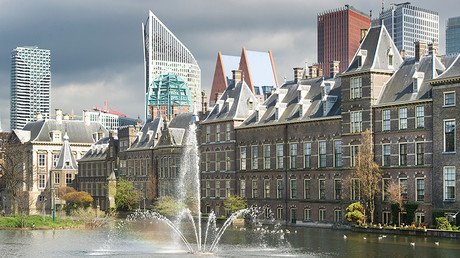Let’s get this over with: Founding EU members want quick divorce from UK
The six founding members of the EU say they want the UK to leave the bloc as soon as possible after Britain’s referendum vote to leave. Diplomats want negotiations to start quickly, to minimize the risk of damaging the bloc even further.
"Negotiations have to go quickly in the common interest," French Foreign Minister Jean-Marc Ayrault said. He added it was imperative to move quickly as the other 27 members needed to give the EU new purpose or there could be a growing risk of populism.
"It's in Britain's interest and in the interest of Europeans not to have a period of uncertainty that would have financial consequences, and that could have economic and political consequences," he added.
A joint statement from the founding nations -France, Germany, the Netherlands, Italy, Belgium and Luxembourg - said they want a fast decision from the UK.
"We now expect the UK government to provide clarity and give effect to this decision as soon as possible," a statement from the foreign ministers read.
German Chancellor Angela Merkel, however, took a different stance on the matter. Addressing a news conference on Saturday, she called on her European counterparts not to put pressure on the UK insisting on its immediate departure from the bloc.
“Quite honestly, it should not take ages, that is true, but I would not fight now for a short time frame,” Merkel told a news conference, according to Reuters.
German Foreign Minister Frank-Walter Steinmeier had initially struck a cautious tone. He said the vote by the British must be seen as a wakeup call and that the bloc must “neither be hysterical nor fall into paralysis.”
Steinmeir added it was imperative EU politicians start to listen not only “to the expectations of European governments, but also to the expectations of the people.”
Britain’s member of the EU executive, Financial Services Commissioner Jonathan Hill, announced his resignation on Saturday following the UK’s decision to leave the EU.
“I don't believe it is right that I should carry on as the British commissioner as though nothing had happened,” Hill, who campaigned against Brexit, said in a statement.
Britain has already stated it’s in no rush to start exit proceedings. Prime Minister David Cameron says he will step down by October, having failed to convince the public to stay in the EU. He also said his successor would make a decision regarding when to leave the bloc.
Over 850,000 sign petition calling for UK to hold 2nd referendum about #Brexithttps://t.co/40bBcasU02
— RT (@RT_com) June 25, 2016
Chief executive of the Leave campaign Matthew Elliott echoed Cameron’s words, saying they are in no hurry to start negotiations to leave the EU. He believes it would be better to start informal talks regarding a full settlement, which would include all aspects of Britain’s relationship with the EU.
"We don't think there is a need to swiftly invoke Article 50," he told Reuters on Saturday. "It’s best for the dust to settle over the summer and during that time for there to be informal negotiations with other states," he added.
Although the EU is trying to return to normal after Brexit, Professor Richard Sakwa, from the University of Kent told RT that this is “a massive blow to the whole system.” He also believes that a number of people voted for Brexit in order to punish David Cameron for being so irresponsible.
“This is a massive blow to the whole system, not only to its physical composition, but to its image as well. The EU has been expanding itself as the main representation of the continent, but now the UK has challenged that,” he said.
There has been anger among large sections of the British public about having to leave the EU, with the younger generation, who overwhelmingly voted to remain, particularly making themselves heard.
A protest is set to take place in London on Saturday with demonstrators marching to the Houses of Parliament. The organizers hope the rally will show people’s extreme disappointment about the referendum that has “split [Britain] into two.”
By Saturday morning, over one million Brits had signed an online parliamentary petition calling for a second referendum. It easily reached the 100,000-signatures benchmark that means the issue must be debated in parliament within a year.













